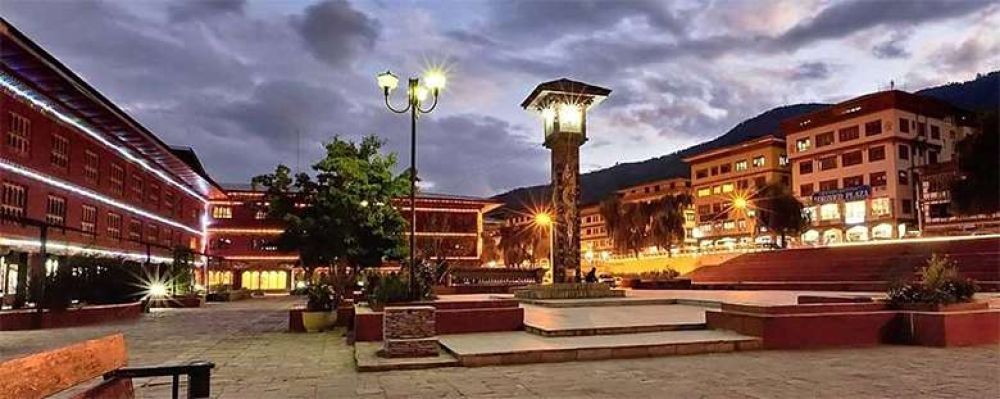

The Kingdom of Bhutan, known for its dramatic landscapes and strong sense of culture and tradition, has always been an exclusive destination for travelers. Thimphu, as the capital city, has seen the evolution of tourism from its earliest days to the present times. The Clock Tower Square in Thimphu is not just a central landmark but also a reflection of the city's growth as a tourist destination.
While Bhutan opened its doors to tourism in 1974, Thimphu has since emerged as a primary gateway for the country’s visitors. The introduction of the Tourism Policy of 1972 by the Royal Government of Bhutan prioritized the conservation of the country's unique culture and environment, paving the way for controlled and sustainable tourism growth.
During these initial years, tourists were few, and the infrastructure to support them was minimal. Visitors mainly came for the cultural insights and the natural beauty of the Himalayas that Thimphu and the rest of Bhutan had to offer.
Clock Tower Square emerged as a central point in Thimphu only a few decades ago. Surrounded by shops and cafes today, the Square is adorned with traditional Bhutanese architectural designs and features four clock faces. The place serves as a cultural hub for both locals and tourists and hosts various cultural events, live music, and the vibrant Thimphu Tshechu festival, thus enlarging Bhutan's vibrant traditional tapestry.
As tourism policies evolved, the structure of tourism in Thimphu became more organized. The introduction of the Minimum Daily Package rate by the government mandated a fixed daily spend for tourists, which included accommodation, transportation, a guide, and food. This approach curbed mass tourism and encouraged high-value, low-impact tourism, which has been successful in preserving the country's pristine environment and unique culture.
The infrastructure around Thimphu, including in the Clock Tower Square area, has developed significantly. The Square is more than a picturesque location; it is symbolic of the careful and considered approach Bhutan has taken in developing tourism in the heart of its culture.
In recent years, Thimphu has seen a trend towards more interactive and sustainable tourism experiences. Visitors are increasingly seeking authentic encounters, such as home stays with local families and participation in local festivals and traditions. There is also a rise in interest for adventure tourism activities like trekking the nearby mountains.
The Clock Tower Square remains a focal point for these tourists, offering a slice of Bhutanese life amidst the backdrop of the country’s rich historical context. It's a place where past meets present, and tradition meets the gentle touch of modernity.
Whether stopping by for a peaceful moment under the gaze of the clock towers, enjoying a traditional meal in a nearby cafe, or engaging with locals during a festive performance, the Square offers an experience unique to the heart of Thimphu, Bhutan.
The Clock Tower Square, while a fairly newer addition to Thimphu's landscape, encapsulates the essence of Bhutan's approach to tourism—blending modernity with tradition while prioritizing sustainability and cultural integrity. It's an essential stop for any visitor to Bhutan, providing a picturesque snapshot of Thimphu's bustling yet tranquil life.